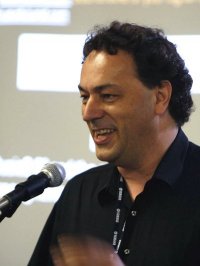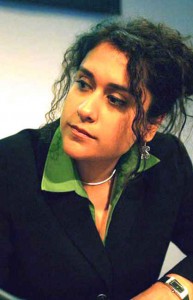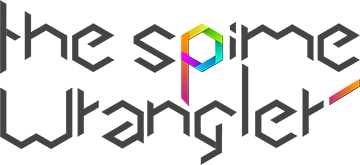It's difficult to get the right mixture of technology, philosophy, sociology and history into a 10 minute talk about the future. It takes a lot of preparation and the results vary with the audience to whom you are speaking.
 Gerd Leonhard, a futurist who lives in Basel but works around the world, is a master at pulling together concepts from a wide variety of sources and using examples that are meaningful to his audience. I've just watched the first episode of GerdTube about Free and Freemium. This topic is particular appropriate for him to be speaking about in a free video series because Gerd seems to be an expert at giving away his knowlwedge (via Twitter– he has 19,000+ followers, via Facebook, G+ and lots of other channels, including, via YouTube). At the same time, Gerd exudes a sense of being highly successful from a consulting point of view.
Gerd Leonhard, a futurist who lives in Basel but works around the world, is a master at pulling together concepts from a wide variety of sources and using examples that are meaningful to his audience. I've just watched the first episode of GerdTube about Free and Freemium. This topic is particular appropriate for him to be speaking about in a free video series because Gerd seems to be an expert at giving away his knowlwedge (via Twitter– he has 19,000+ followers, via Facebook, G+ and lots of other channels, including, via YouTube). At the same time, Gerd exudes a sense of being highly successful from a consulting point of view.
I look forward to watching more episodes of GerdTube!
 In her presentation (available on YouTube here) at the Future Internet week in Budapest Hungary, Lara Srivastava, also balanced these forces remarkably well, identifying the key issues for the future as well as the opportunities for the Internet of Things, without neglecting the past. It's difficult to say where, precisely, we are in the evolution that, for Srivastava and others, began six years ago but still has a long ways to go before becoming mainstream. One of her predictions is that we must envisage a day when the public can edit and publish directly into and with the Internet of Things, as we do with our social media on the Web today. That, she predicts will lead to chaos. But chaos is not all bad. Random genetic recombinations are at the very heart evolution, in fact. So celebrate chaos? That requires balance, lots of it!
In her presentation (available on YouTube here) at the Future Internet week in Budapest Hungary, Lara Srivastava, also balanced these forces remarkably well, identifying the key issues for the future as well as the opportunities for the Internet of Things, without neglecting the past. It's difficult to say where, precisely, we are in the evolution that, for Srivastava and others, began six years ago but still has a long ways to go before becoming mainstream. One of her predictions is that we must envisage a day when the public can edit and publish directly into and with the Internet of Things, as we do with our social media on the Web today. That, she predicts will lead to chaos. But chaos is not all bad. Random genetic recombinations are at the very heart evolution, in fact. So celebrate chaos? That requires balance, lots of it!
